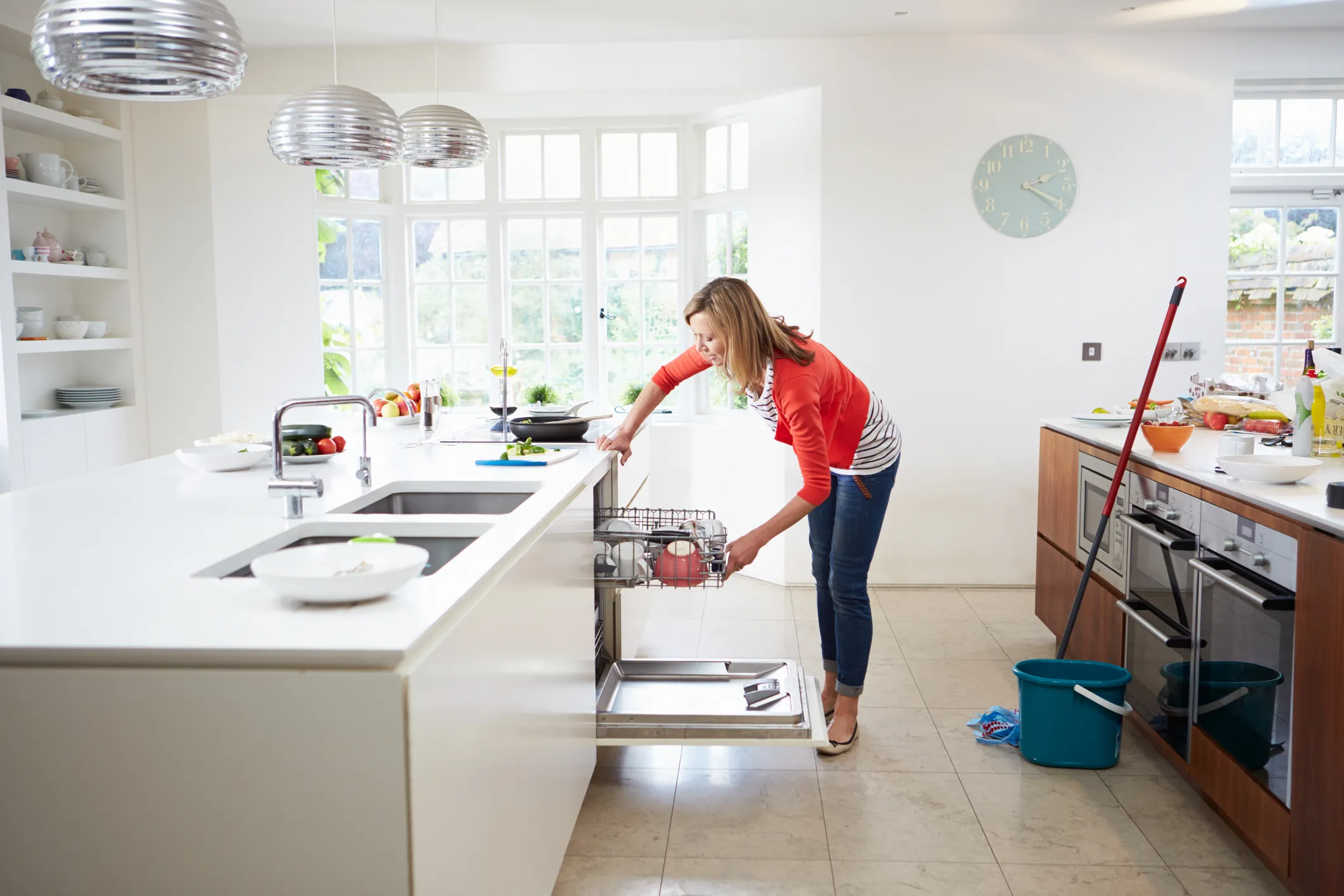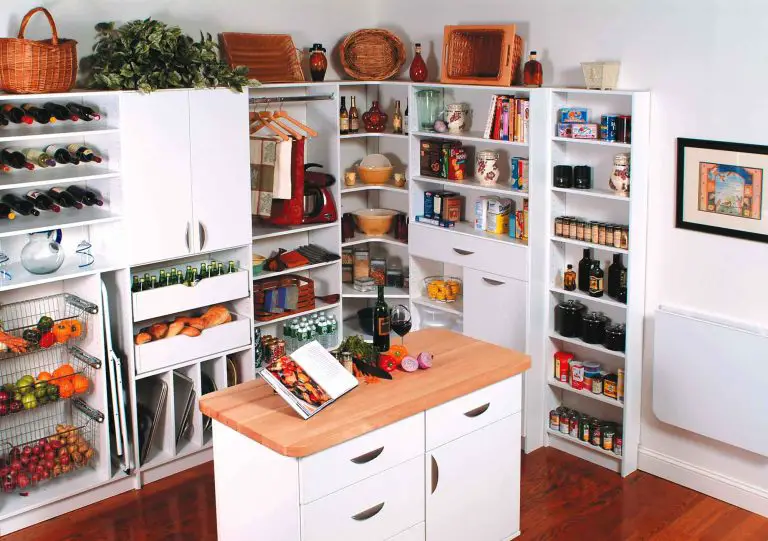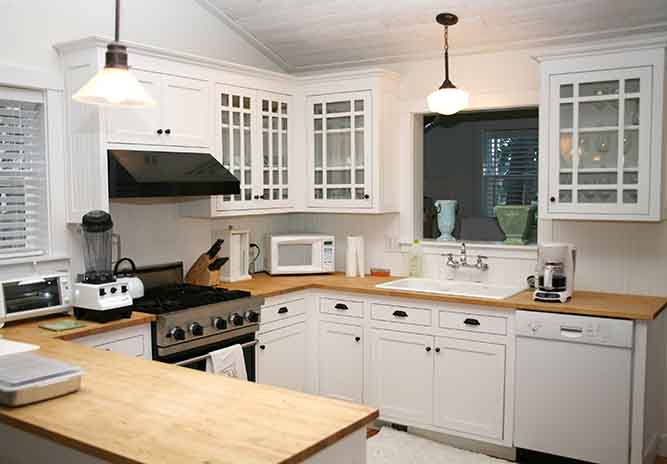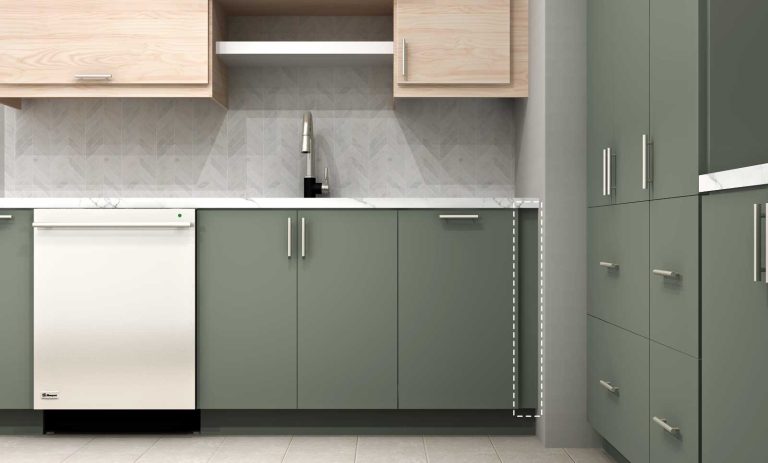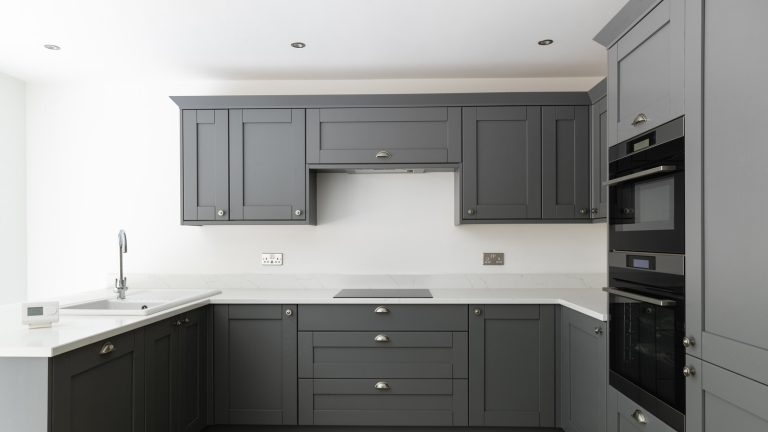Tips to Help You Keep Your Kitchen Clean
Keeping your kitchen clean is essential for good kitchen hygiene and the health of you and your family. A dirty kitchen can harbor harmful bacteria that can cause foodborne illnesses, and a cluttered kitchen can make it difficult to cook and prepare food. Fortunately, there are many tips and tricks you can use to keep your kitchen clean and organized. From regular cleaning routines to simple organization techniques, these tips can help you maintain a clean and healthy kitchen environment. In this article, we will discuss some of the top tips to help you keep your kitchen clean and hygienic.
Importance of keeping the kitchen Clean
Keeping the kitchen clean is essential for several reasons, including:
- Preventing foodborne illnesses: Bacteria, viruses, and other harmful microorganisms can quickly grow on dirty surfaces, causing foodborne illnesses that can lead to serious health problems.
- Maintaining food quality: A clean kitchen helps to preserve the quality and freshness of food. A dirty kitchen can cause food to spoil faster, leading to food waste and increased costs.
- Creating a healthy living environment: A clean kitchen helps to maintain a healthy living environment for you and your family, reducing the risk of allergies, asthma, and other respiratory problems.
- Enhancing cooking efficiency: A clean and organized kitchen makes it easier to prepare meals, reducing the time and effort required to cook.
By keeping your kitchen clean and hygienic, you can promote the health and well-being of you and your family, and make meal preparation a more enjoyable experience.
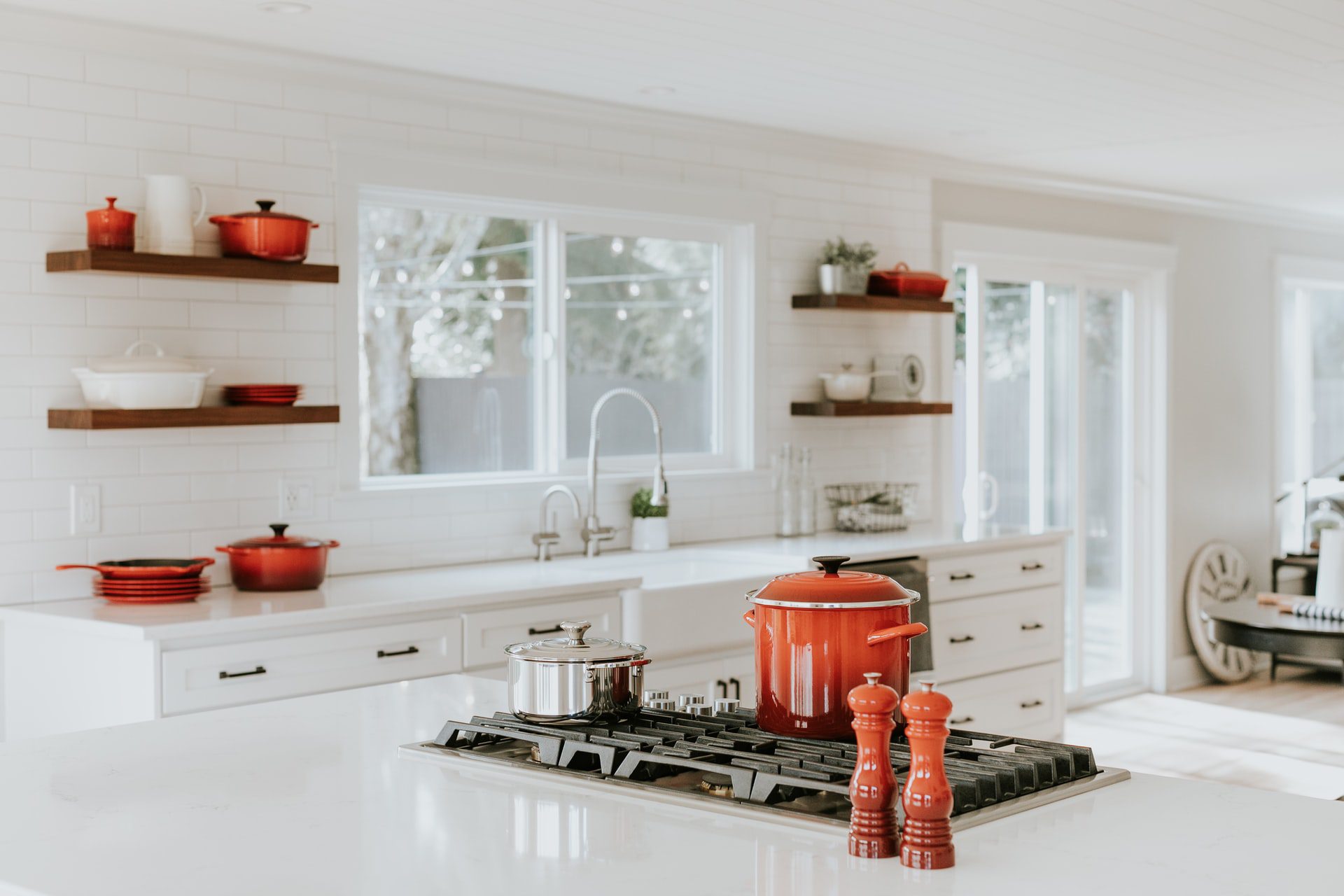
Credit: www.lifeyourway.net
Wipe Down Surfaces and Counters After Use
Wiping down surfaces and counters after use is an important step in maintaining a clean kitchen. This helps to remove any food particles or spills that can attract bacteria and cause unpleasant odors. To do this, you can use a damp cloth or sponge with a mild cleaning solution to wipe down the surfaces and counters. Pay special attention to areas where food is prepared, such as cutting boards and countertops. Be sure to dry the surfaces thoroughly after cleaning to prevent moisture from accumulating, which can also promote bacterial growth. By making this a regular habit after every use, you can prevent the buildup of dirt and grime, and keep your kitchen clean and hygienic.
Clean Appliances, Such as the Oven, Microwave, and Refrigerator
Cleaning appliances such as the oven, microwave, and refrigerator is essential to maintaining a clean and hygienic kitchen. Food particles and spills can accumulate on these appliances over time, attracting bacteria and causing unpleasant odors. Here are some tips for cleaning these appliances:
- Oven: To clean the oven, you can use a commercial oven cleaner or make your own by mixing baking soda and water to form a paste. Apply the paste to the interior of the oven and let it sit for a few hours before wiping it clean with a damp cloth.
- Microwave: To clean the microwave, you can place a bowl of water with lemon slices or vinegar inside and microwave for a few minutes. The steam will help loosen any food particles, making them easier to wipe away with a cloth.
- Refrigerator: To clean the refrigerator, remove all the food and shelves, and wash them in warm, soapy water. Wipe down the interior of the refrigerator with a damp cloth and a mild cleaning solution. Be sure to check the expiration dates of food items and discard any that have gone bad.
By cleaning these appliances regularly, you can keep your kitchen clean, hygienic, and functioning properly.
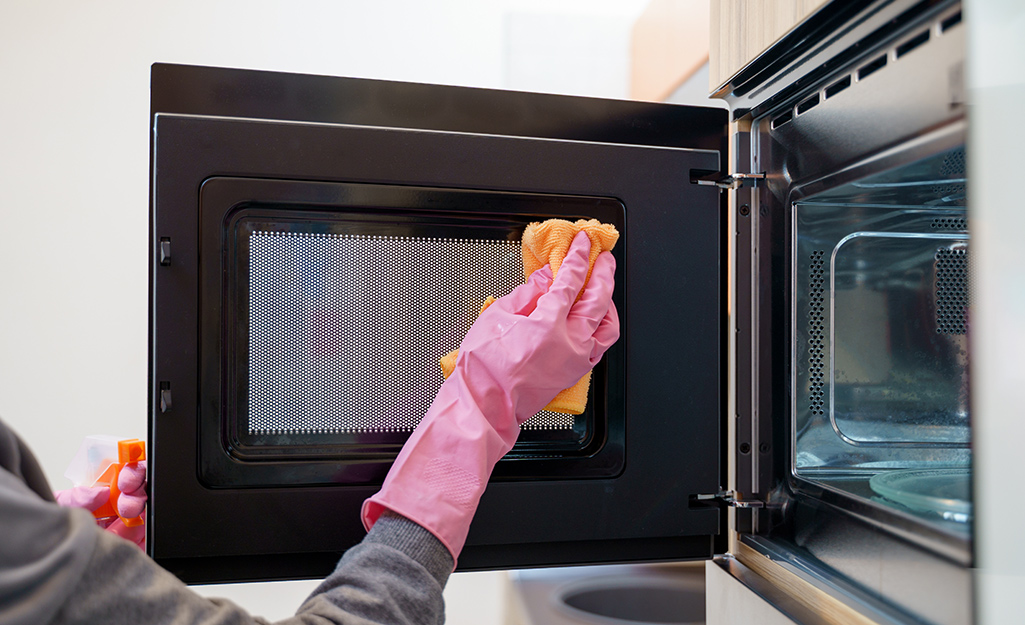
Keep only necessary items on the countertop
Keeping only necessary items on the countertop is an effective way to reduce clutter and make cleaning easier. Here are some tips for deciding which items to keep on the countertop:
- Identify your most frequently used items: Take note of the items you use most often in your daily cooking routine, such as salt and pepper shakers, cutting boards, and utensils. These are the items that should be kept on the countertop for easy access.
- Store the rest: Find a designated place to store items that are not used as frequently. Consider using drawers, cabinets, or pantry shelves to keep these items out of sight.
- Consider multipurpose items: Look for items that serve multiple functions, such as a can opener that also functions as a bottle opener. This can help reduce the number of items that need to be stored on the countertop.
- Keep it clean: When cleaning the countertop, remove all items to ensure that every surface is properly cleaned and sanitized.
By following these tips, you can keep your countertop clean and clutter-free, making cooking and cleaning in the kitchen easier and more efficient.
Use a Cutting Board when Preparing Food
Using a cutting board when preparing food is an important step in maintaining good kitchen hygiene. Here are some tips to help you choose the right cutting board and use it effectively:
- Choose the right material: Cutting boards can be made from various materials, including wood, plastic, and bamboo. Each material has its pros and cons, but plastic is the most common choice as it is easy to clean and sanitize.
- Use a separate cutting board for raw meat: To avoid cross-contamination, it’s important to use a separate cutting board for raw meat and poultry. Use a designated board for these items and clean it thoroughly after each use.
- Clean and sanitize regularly: Cutting boards can harbor bacteria, so it’s important to clean them thoroughly after each use. Wash with hot, soapy water, rinse well, and sanitize with a solution of one tablespoon of bleach per gallon of water.
By using a cutting board when preparing food, you can help prevent the spread of harmful bacteria and ensure that your kitchen remains clean and safe.
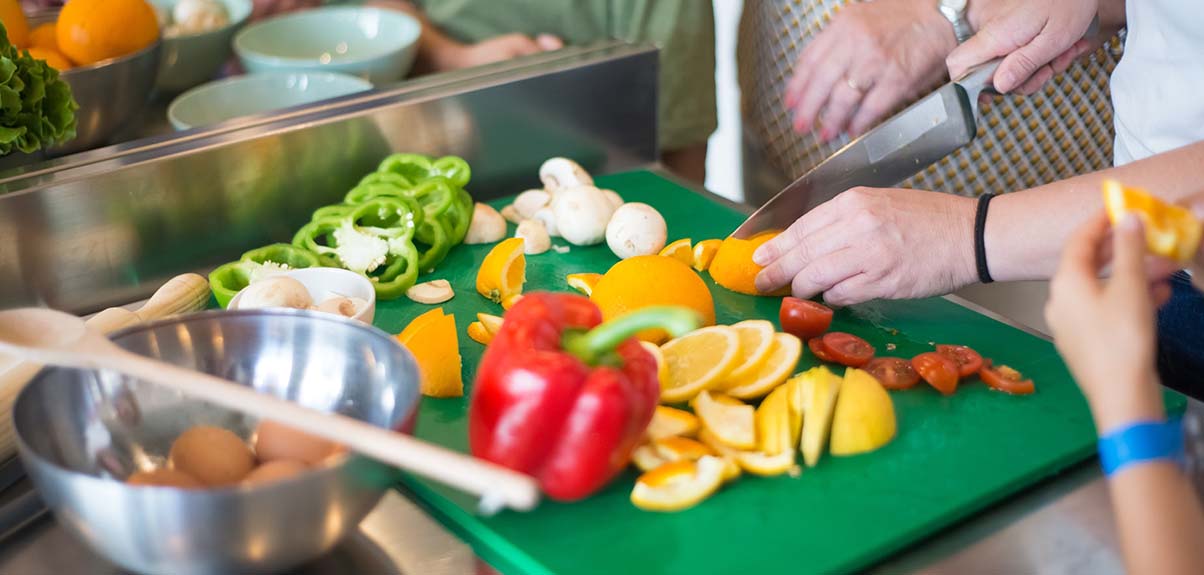
Importance of Consistency in Keeping the Kitchen Clean
Consistency is crucial in maintaining a clean and hygienic kitchen. Here are some reasons why:
- Prevents buildup of bacteria and germs: Consistently cleaning and sanitizing surfaces, utensils, and appliances helps prevent the buildup of harmful bacteria and germs that can cause foodborne illness.
- Reduces the risk of pests: A clean kitchen reduces the likelihood of attracting pests, such as rodents and insects, that can contaminate food and spread disease.
- Makes cleaning easier: Consistent cleaning prevents dirt and grime from building up, making it easier to clean and reducing the time and effort required for deep cleaning tasks.
- Promotes good habits: Consistency helps establish good cleaning habits, making it more likely that these habits will become second nature and result in a cleaner, healthier kitchen over the long term.
By consistently keeping the kitchen clean, you can create a safer and healthier environment for yourself and your family, reduce the risk of illness and pests, and establish good habits that will benefit you in the long term.
Conclusion
Maintaining a clean kitchen not only promotes good hygiene but also makes cooking and meal prep more enjoyable. By following simple rules for good kitchen hygiene, such as washing your hands and cooking food to the right temperature, you can reduce the risk of foodborne illness. Additionally, keeping your kitchen clean by wiping down surfaces and organizing your countertop can make meal prep easier and more efficient. By incorporating these tips into your daily routine, you can maintain a clean and organized kitchen that is both functional and inviting.

